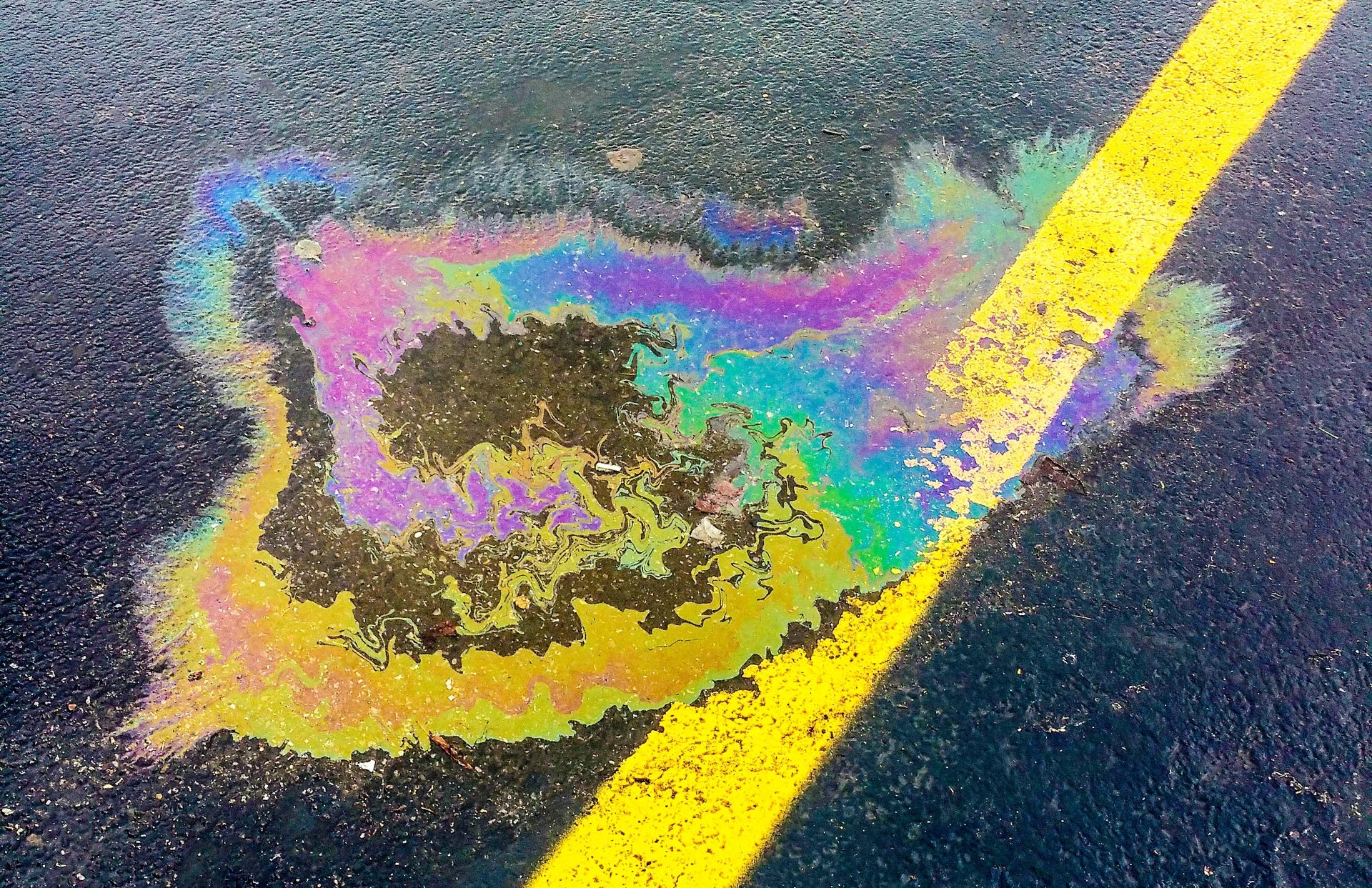Artificial intelligence is poised to shake up everything - so let's see how ChatGPT handles writing an SPCC Plan.
Unless you've been living under a rock for the last few months, chances are pretty good you're familiar with ChatGPT, the magic AI tool that seems to be capable of almost anything. From acting as a search engine to helping write virtually anything you throw at it, we're starting to wonder how will it impact the world of environmental consulting and environmental regulatory compliance.
Things like technical documents, manuals, plans, permits, approvals, etc., are all things that we've (historically) had to write by hand, crafting them for individual operations, industries, locations, etc. Can ChatGPT do this for us? Can it do it for YOU? Is this going to put us out of business?!
We decided to see for ourselves, and answer the question as to whether or not AI, ChatGPT, or any other similar tool can (as of the date of this article) do these things for us.

Does ChatGPT know what an SPCC Plan is?
The short answer is sort of. Here's what it has to say about putting together an SPCC Plan:
An SPCC (Spill Prevention, Control, and Countermeasure) Plan is a document that outlines the procedures and equipment a facility has in place to prevent, contain, and clean up spills of oil and other hazardous materials.
Here is an example of an SPCC Plan:
Title: XYZ Facility SPCC Plan
I. Introduction
- Facility name and location
- Description of the facility's operations and materials stored on site
- Identification of the responsible party(ies) for the SPCC Plan
II. Facility Description
- Maps and diagrams of the facility, including locations of storage tanks, drainage systems, and spill containment areas
- Description of the facility's drainage systems and how they are designed to prevent oil spills from reaching navigable waters
- Description of the facility's spill containment and control measures, including secondary containment, dikes, and berms
III. Oil Storage and Handling
- Description of the types and quantities of oil stored at the facility
- Procedures for monitoring and maintaining storage tanks, including regular inspections and testing
- Procedures for responding to a spill, including emergency shut-off valves, alarms, and emergency response plans
- Procedures for reporting spills to the appropriate authorities
IV. Training and Drills
- Description of the training program for employees on the proper handling and storage of oil, as well as emergency response procedures
- Schedule of regular drills and exercises to test the facility's emergency response plan
V. Recordkeeping and Reporting
- Procedures for maintaining records of inspections, maintenance, and spill response activities
- Procedures for reporting spills and other incidents to the appropriate authorities
VI. Conclusion
- Summary of the facility's SPCC Plan and its effectiveness in preventing and responding to oil spills
- Signature of the responsible party(ies) certifying that the plan is accurate and up-to-date.
It is important to note that this is a sample plan and might not be suitable for every facility. Each facility should consult the regulations and rules of the governing body and make sure the plan meets the requirement.
Not bad ChatGPT! I'd say this nails the spirit of the regulations, even if it glosses over some hard details.
For example, it states SPCC includes hazardous materials (it doesn't, SPCC Plans are only for oils), mentions training without providing specifics (SPCC Training has to be done annually FYI), doesn't discuss whether plans can be self-prepared, or require PE certification, neglects to mention thresholds for needing a plan or not, etc.
Again, nails the spirit of the regulations, but falls really short of painting the full picture! But, it does disclaim at the end that this might not be enough, so that's a good thing!
Now, maybe with some further digging, better questions, etc., you could figure out the above items. But, if you're completely new to the concept of SPCC Plans, would you know to ask "what are SPCC Plan thresholds"? Probably not! Would know to ask "do I need a PE" or "how often do I need SPCC Training" or "when do I need to do inspections and how long do I need to keep records for"? The answer is most likely no, you wouldn't, so you'd take the above at face value. If you knew enough to ask more questions, then you likely know enough about SPCC Plans to determine that ChatGPT (as of writing this article) falls short in giving you all the details.
If this subject is completely new to you, check out three of our intro articles on the subject to learn more about some SPCC Plan basics.
So is this enough of a "blueprint" for someone to develop an SPCC Plan on their own by using ChatGPT as a guide?
The short answer is yes with a but.
The long answer is if you're just going off this, your plan will be nowhere near sufficient enough to stand up to scrutiny against the USEPA. Having said that, we always say "a bad plan is better than no plan", but the reality of the situation is the USEPA only wants to see well-crafted plans put together for individual facilities, not a boilerplate generic piece of junk.
A bad plan might cut you some slack, but it will also show you knew enough to get an SPCC Plan in the first place, but put in so little effort you didn't see it through correctly. In our experience, this is a pretty bad stance to take, and often ends up with companies in hot water for non-compliance issues.
So, using ChatGPT to help you write an SPCC Plan going off what they guided us to do here will put together a plan, albeit an incomplete, and honestly, a bad one that could cause more trouble than it's worth.

Why should I care if I have a good or bad SPCC Plan?
Here's the thing: An SPCC Plan is a document that's meant to keep our community and environment safe from oil spills. And when it comes to something as serious as that, it's important to get it right, because the ramifications of spilling oil into our waterways can be severe, especially for your wallet.
SPCC Plans have to meet very specific requirements. Your plan needs to be molded and crafted to your operations - these are not cookie cutter one-size-fits-all things.
And think of it this way - you're putting your faith (assuming you go the AI route) in a freebie AI tool without knowing if it's giving you the full picture (as illustrated above, it isn't). If the data used to train the AI is not relevant or accurate, then the resulting plan may not be effective in preventing spills or protecting the environment. All this means you'll end up with an SPCC Plan that doesn't meet all the requirements. If you get inspected, or there's an oil spill, and you have a poorly put-together AI-derived SPCC Plan, good luck dealing with the Federal government (who won't cut you ANY slack).
While that may sound like a lot, honestly SPCC Plans are some of the easiest environmental regulations to stay in compliance with. For additional information on the subject, check out the following articles:
Should I use AI or ChatGPT to write an SPCC Plan for my business?
As of the date of writing this article, I'd say no. Use it as a guide, use it as your "introduction" into the world of SPCC Plans, but to fully rely on this technology to write your plan, or give you all the information, is probably a bad idea.
Doing so risks putting together an incorrectly, poorly made SPCC Plan that falls drastically short of the regulatory requirements that the USEPA expects you to follow. Having said that, it's your business, do as you please, but don't expect anyone to cut you any slack for having an inadequate plan.
Having said that, who knows what the future will bring! My advice is to use AI as a tool, but don't rely on it to write your entire SPCC Plan.
Realistically, you'll want to consult with experts in the field of environmental regulations and spill prevention, who can provide guidance and ensure that your plan is compliant and effective in preventing spills. Trust me, it's better to be safe than sorry when it comes to something as important as staying in compliance with Federal regulations.
If you aren't sure where to start with SPCC Plans, reach out. We've been in business for over 30 years, and have developed SPCC Plans across the US for facilities big and small across a variety of industries. To get a hold of us, either fill out the form below to reach out to us directly, click here to contact us, call us anytime at 888-RMA-0230, or shoot us an email at info@rmagreen.com to talk.



